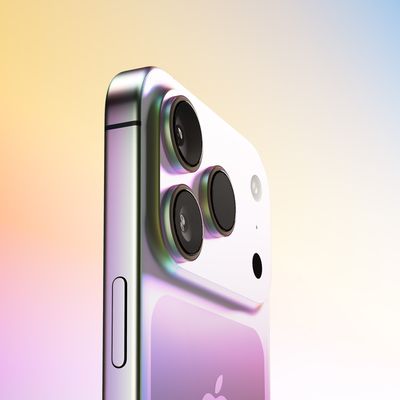 In an ongoing class action lawsuit that alleges Apple deliberately crippled competing music services by locking iPods and iTunes music to its own ecosystem, Apple iTunes chief Eddy Cue today testified on Apple's Digital Rights Management (DRM) policies.
In an ongoing class action lawsuit that alleges Apple deliberately crippled competing music services by locking iPods and iTunes music to its own ecosystem, Apple iTunes chief Eddy Cue today testified on Apple's Digital Rights Management (DRM) policies.
In the early days of iTunes and the iPod, all iTunes music purchases were encoded with Apple's FairPlay DRM, preventing music bought via iTunes from being played on music players other than the iPod. In the two-pronged antitrust lawsuit that covers both iTunes music being restricted to the iPod and iPods being unable to play content from third-party services, Apple's use of restrictive DRM is one of the major complaints against the company.
According to Eddy Cue, in testimony shared by The Verge, Apple was against DRM but was forced to implement it in order to secure deals with record labels. FairPlay, developed by Apple, was not licensed to other companies to allow competing music services to play iTunes music because Apple "couldn't find a way to do that and have it work reliably."
As issue, Cue said, were things like interoperability with the growing multitude of MP3 players. New devices from other companies would come out, and might not work with that system. "Others tried to do this, and it failed miserably," Cue said. "One of those was Microsoft." Cue also noted that when Apple first floated the idea of the iTunes Store to record labels, that they rebuked the idea because they had their own stores with DRM systems that could be different from song to song, and from device to device.
With its FairPlay DRM, Apple essentially prevented iTunes music from being played on competing music players and it also kept competing music services, like RealNetworks, from selling music that could circumvent iTunes and play on the iPod by disallowing RealNetworks' attempts to reverse engineer FairPlay.
As revealed yesterday, Apple also quietly deleted music downloaded from rival services by directing iPod owners to restore their devices to factory settings. According to Cue, allowing third-party music services to work with the iPod "wouldn't work," causing the integration between iTunes and iPod to fail. "There's no way for us to have done that and had the success we had," he said.
In addition to arguing that its DRM was required for deals with record companies, Apple is also positioning its efforts to lock down iTunes and the iPod as a measure to protect consumers from hackers and malicious content. "If a hack happened, we had to remedy the hack within a certain time period," Cue told the court. If the problem wasn't fixed in a timely manner, record companies could pull their music from iTunes, so Apple had to push regular updates to iTunes and its DRM to prevent "hacks" circumventing the technology.
The class action lawsuit, which has featured emails from Steve Jobs, began on Tuesday of this week and is being heard in the U.S. District Court in the Northern District of California. Apple marketing head Phil Schiller is still expected to testify, and a video deposition taken from Jobs before his death is also expected to be heard before the court proceedings end.

















